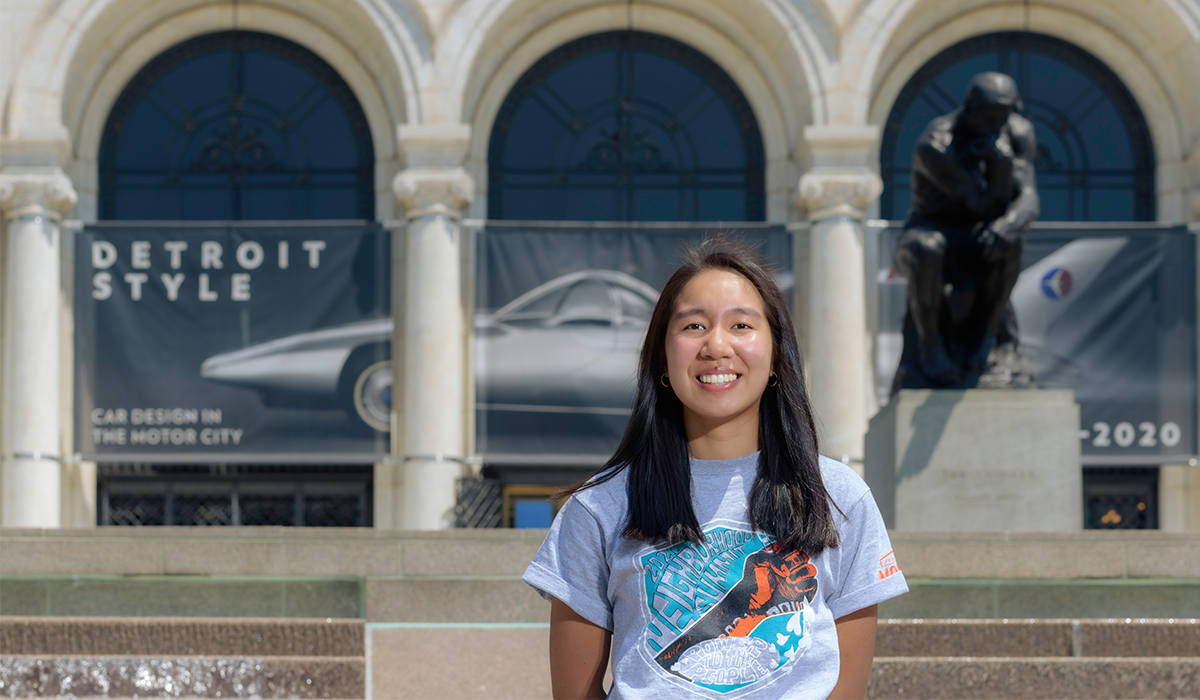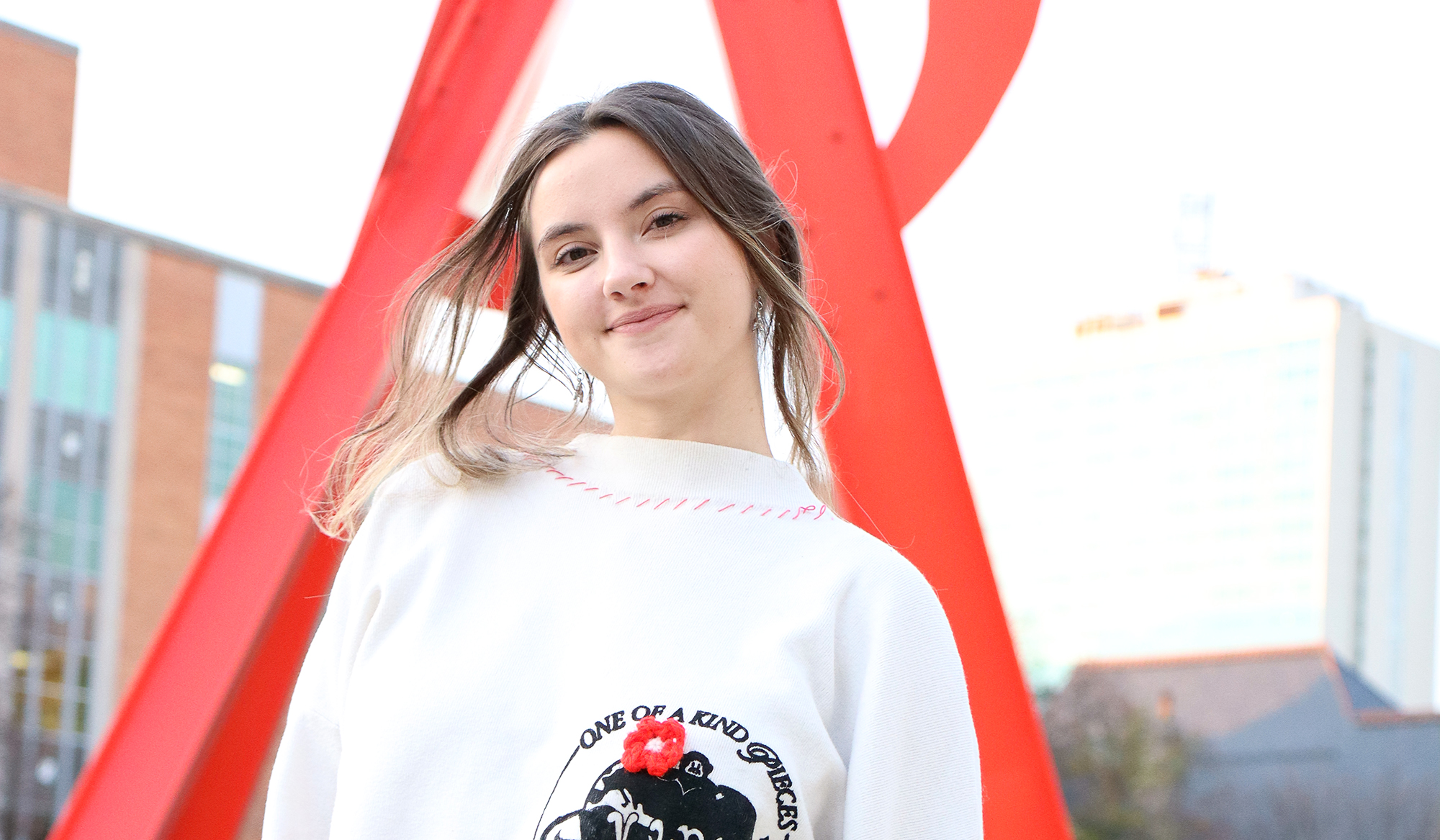This summer, LSA senior Eva Yeh completed an internship with Detroit Disability Power, helping to empower people with disabilities in metropolitan Detroit. The internship is part of LSA’s Semester in Detroit program and allowed her to apply her education in linguistics and cognitive science to a real-world experience.
Michigan Alum gleaned the following in a conversation with Yeh.
YEH’S INTERNATIONAL UPBRINGING deepened her appreciation for linguistic and cultural diversity. Born in Ohio, she lived most of her life in Toronto until moving to Beijing as a middle schooler and finally returning to Ohio when she was a teenager. She began working with the disability community in high school. Volunteering with the Youth Challenge after-school program, she participated in sports and recreational activities with students with disabilities. “That’s when I knew that my future had to be related to working with a disability community in one way or another.”
DURING HER FIRST YEAR AT U-M, she discovered linguistics. After taking a course on speech therapy, she realized it was the perfect degree for her. “There’s problem-solving, there’s research, there’s history, there’s so much social analysis, and there’s a lot of psych. And that is really cool because you examine a crucial part of the human experience—communication—from all these different lenses.”
THE SEMESTER IN DETROIT PROGRAM has involved U-M students with nonprofit organizations in the city since 2009. The program currently partners with more than 60 organizations, allowing students to apply their education in a variety of fields. Yeh worked with Detroit Disability Power to ensure that people with disabilities in Detroit received accommodations for COVID-19 testing and vaccination. The experience increased her awareness of the importance of including people with disabilities in social justice movements. “It is actually a lot of work,” Yeh said. “If someone is deaf and you want to include their voice, you have to hire an ASL interpreter. That’s work that people don’t want to do; that’s money that doesn’t exist in social justice movements. But that’s not a good reason, in my opinion, to not include voices that are disabled.”
AFTER GRADUATION, Yeh wants to become a speech-language pathologist, combining the study of speech disorders with the cultural contexts in which these pathologies are diagnosed and often misdiagnosed. “I think it’s a space that I have to navigate delicately,” Yeh said. “I can’t really be speaking for people with disabilities without people with disabilities on my team. That’s why I’m trying to do speech therapy, because I think it is a really good way to advocate and interact with the disability community.”
YEH HOPES TO REPLACE the damaging misconceptions about disability with a more inclusive view of humanity. “Disability is a normal part of human diversity,” Yeh said. “We should be able to live with different types of communication skills and shouldn’t be perpetuating one specific type of human, one specific type of elementary school kid that is healthy and normal.”
Alexander Satola ([email protected]), is an LSA senior.





